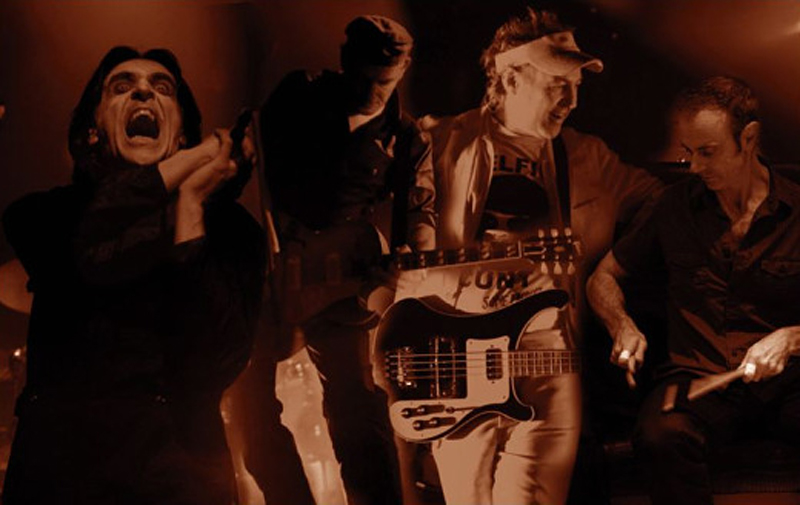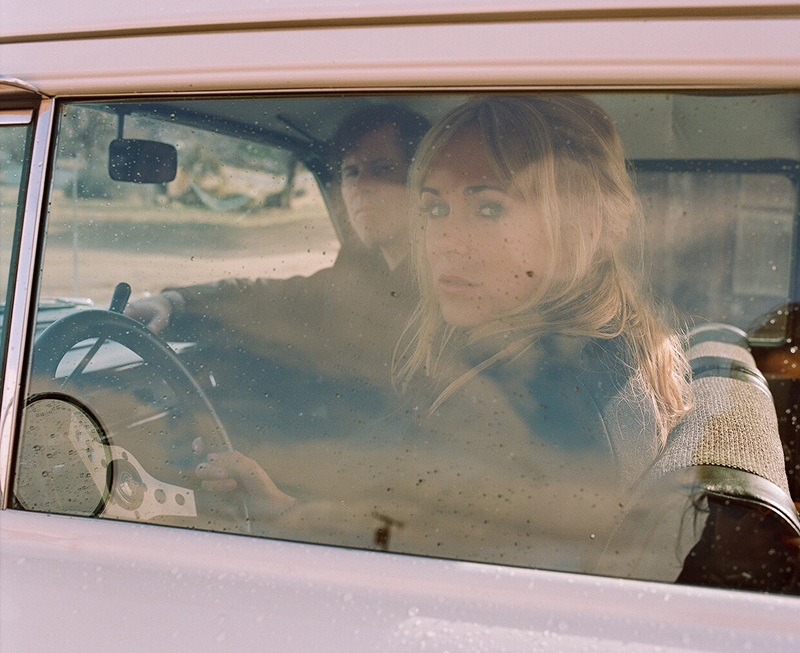The Isle of Man—a tiny British Crown dependency located in the Irish Sea—has a population of around 80,000. One of them, 23-year-old Davy Knowles, is arguably the next great blues-guitar hero. Chances are you haven’t heard of him yet.
Chances are even greater you’ve never heard of Blix Street Records, a tiny independent label across Puget Sound in Gig Harbor that issued Knowles’ solo debut, Coming Up for Air, in May. But the two took a chance on each other a couple of years ago, a partnership that looks positioned to pay off handsomely.
The hard-touring Knowles—who comes back to the Crocodile this Saturday—began playing guitar at age 11 after he heard Dire Straits’ “Sultans of Swing” in his father’s car, and, a true prodigy, learned the whole song by ear in no time. “I don’t think it was even ever a decision,” Knowles says of pursuing a career in music. “It was no choice for me, it was just a given.”
As Knowles was honing his chops, Bill Straw—who had worked in the legal departments of Capitol Records and Warner Brothers Records—was finally getting his own label off the ground. Founded in 1994, Blix Street (so named for the North Hollywood street where Straw lived) focused mainly on Celtic and folk music, issuing albums from the likes of Mary Black, Dougie MacLean, and Grace Griffith, and securing a distribution deal with Ryko.
In the late ’90s, Straw began posthumously releasing a series of live and studio recordings by the remarkable but obscure D.C. jazz/folk/R&B vocalist Eva Cassidy, who died of cancer in 1996 at 33. Those critically hailed albums sold well and helped earn Cassidy’s work a cult following, particularly in the UK—and put Blix Street on the map.
A decade after her passing, Cassidy also helped bring Blix Street (based in Gig Harbor since 2001) and Knowles together. Three years ago, explains Knowles, “there was a look-alike/sound-alike competition on the Isle of Man, and the lady who won it was compared to Eva Cassidy. She won studio time in the same studio that we were recording in, and it came up on Blix’s radar. So they rang up the studio and said, ‘Hey, is this lady any good?’ And they said, ‘Yeah, she’s pretty good, but you gotta check out this other band we’re working with…'”
Straw signed Back Door Slam as a trio three years ago and released the group’s debut LP, Roll Away, in 2007. Well-received in blues and rock circles, it led to opening slots for the likes of The Who, Gov’t Mule, Lynyrd Skynyrd, and even Kid Rock, and appearances at numerous festivals in the U.S., including South by Southwest, Download, and Bonnaroo. Soon, however, it became evident that Knowles was the star of the show, and late last year he decided to strike out on his own (though he’s got a new backing band that retains the name Back Door Slam). With a fresh batch of songs in hand, he teamed with guitar legend Peter Frampton, who produced Coming Up for Air.
Knowles’ fretwork on the record is remarkably fluid and soaring, snarling and biting when it needs to, and he displays an understanding of nuance, restraint, and dynamics that’s rare even in musicians two or three times his age. Most important, his songs are packed with feeling, always prizing emotion over technical skill (even if that skill is off the charts).
Coming Up for Air has become one of Blix’s best-selling discs. It certainly doesn’t hurt that Knowles has been compared to Stevie Ray Vaughan and Jeff Beck, or that guitar god Joe Satriani recently called him “my new favorite modern-day bluesman.” After touring with Satriani’s hard-rock supergroup Chickenfoot this year, Knowles has become a viable headlining act.
Meanwhile, Blix Street isn’t wasting its opportunity to build on the momentum generated with Knowles. The label just signed singer-songwriter Maia Sharp (who has penned tunes for Bonnie Raitt, the Dixie Chicks, Trisha Yearwood, Cher, and others) and released her album Echo. Straw says several more projects are in the works, but he still hopes to maintain the fruitful relationship he’s established with Knowles. “I have to be able to help him, and vice versa. But I will always help Davy Knowles, no matter what, because you instinctively want to. He’s a great kid.”








